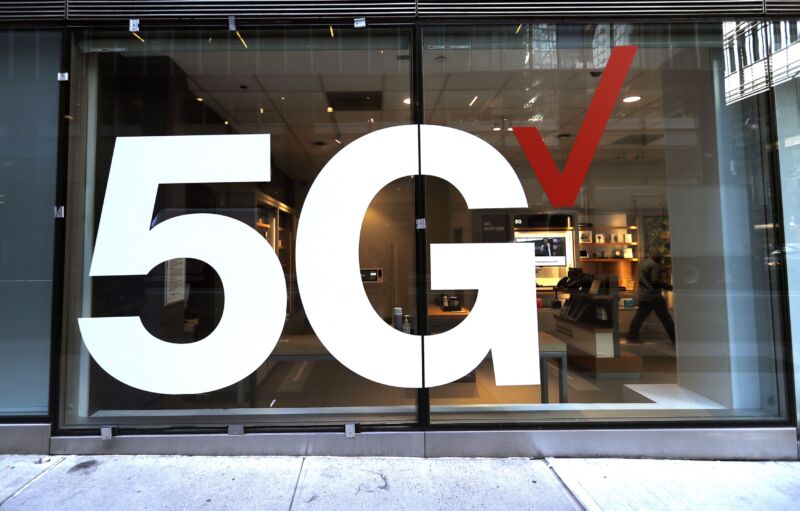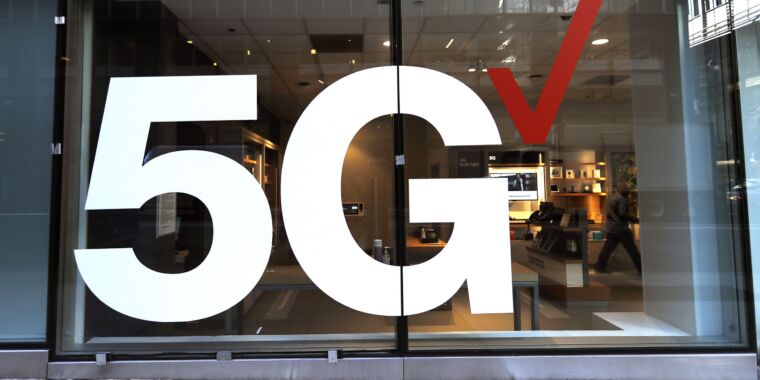
Getty Images | SOPA Images /
The Federal Aviation Administration tentatively agreed not to seek any more 5G delays from AT&T and Verizon, potentially ending a battle over the aviation industry’s unproven claim that 5G transmissions on C-Band frequencies will interfere with airplane altimeters.
The commitment came Monday night, when AT&T and Verizon agreed to one more delay of two weeks, pushing their deployment off until January 19. They had previously agreed to a delay from December 5 until January 5. Terms of Monday’s deal were described in an attachment to a letter that Secretary of Transportation Pete Buttigieg sent to the carriers.
“In light of the foregoing, and subject to any unforeseen aviation safety issues, DOT and FAA will not seek or demand any further delays of C-Band deployment,” the deal terms say.
Radio exclusion zones around airports
Buttigieg thanked the AT&T and Verizon CEOs, writing, “Your voluntary agreement both to delay initial deployment by two weeks, and to subsequently adopt some additional mitigations, will give us additional time and space to reduce the impacts to commercial flights… We are confident that your voluntary steps will support the safe coexistence of 5G C-Band deployment and aviation activities.”
The deal incorporates voluntary commitments that AT&T and Verizon previously made, including “C-Band radio exclusion zones” around airports for six months. The aviation industry will give carriers “a list of no more than 50 priority airports” where the exclusion zones will apply.
AT&T and Verizon will provide data on base stations, operating characteristics, and planned deployment locations. They will also “continue to work in good faith with aviation stakeholders to support the technical assessment of individual altimeters and airport environments,” the deal says. The FAA previously said it “will safely expedite the approvals of Alternate Means of Compliance (AMOCs) for operators with high-performing radio altimeters to operate at those airports,” signaling that airlines may already be using altimeters that can co-exist with C-Band transmissions.
Airlines threatened mass flight cancellations
AT&T and Verizon’s C-Band spectrum licenses are for the frequencies from 3.7 GHz to 3.98 GHz, but the companies don’t plan to deploy between 3.8 GHZ and 3.98 GHz until 2023. The radio altimeters used to determine airplane altitudes rely on spectrum from 4.2 GHz to 4.4 GHz.
AT&T and Verizon have repeatedly pointed out that the C-Band is being used for 5G in nearly 40 countries without reports of interference to altimeters. The Federal Communications Commission determined that the spectrum was safe to use for 5G in a February 2020 decision. The FCC set aside a 220 MHz guard band that will remain unused to protect altimeters, saying that “well-designed equipment should not ordinarily receive any significant interference (let alone harmful interference) given these circumstances.”
Before Monday’s agreement, a trade group that represents the major US airlines filed an emergency petition asking the FCC to stop C-Band deployment near airports. The petition threatened a lawsuit and claimed that interference from the C-Band could force airlines “to divert or cancel thousands of flights every day.”
AT&T and Verizon initially refused Buttigieg’s request for another delay, saying it “asks that we agree to transfer oversight of our companies’ multi-billion dollar investment in 50 unnamed metropolitan areas representing the lion’s share of the US population to the FAA for an undetermined number of months or years.”
